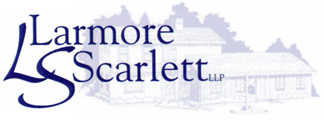A Primer On State And Federal Taxation Of Trusts In Pennsylvania
Trusts can provide financial security and taxation benefits. Federal and state taxes may still apply, depending on the language used to establish the trust.
Trusts are legal documents that can supplement an estate plan in many ways. In addition to providing increased privacy and avoiding the potentially arduous and expensive probate process, trusts can also provide tax benefits. With certain steps during its creation, a trust can reduce tax obligations and increase the financial security of future generations.
Although tax benefits are available, it is important for those considering this type of legal and financial tool to be aware of the fact that taxes still apply. However, the language of the trust document will determine the extent of these taxes.
Federal taxes and trusts
Trusts are treated as separate legal entities. As a result, taxes apply. Essentially, both the trust and beneficiaries are taxed based on the income made during the taxable year. For federal taxes, Form 1041 is used. This form is generally required whenever a trust has a gross income at or above $600.
State taxes and trusts
Taxes can also apply at the state level. The rules that govern these taxes will vary for each state. The Pennsylvania Department of Revenue generally requires a Form PA-41 for any trust that earned more than $33 of Pennsylvania-taxable income. There are exceptions to this requirement, including:
- Charitable trusts
- Funeral trusts
- Nonresident trusts with Pennsylvania beneficiaries as long as the trust is not funded with state sources
Essentially, a nonresident trust is one that is created by an individual who was a Pennsylvania resident at the time of creation. In some instances, an inter vivos trust or testamentary trust can become a nonresident trust.
Cases illustrate potential for change and challenges
Although the application of taxes to trusts is already complicated, recent cases illustrate the additional issues that can arise. These issues are tied to how mobile individuals are and the fact that various portions of creation, administration and payment from the trust can occur in different states throughout the country. This can make determining the state portion of taxation difficult.
These difficulties were recently illustrated in a case out of Pennsylvania. The case involved a beneficiary who received a discretionary payment from a trust. The trust was administered and funded from sources outside of the state. However, both the creator and beneficiaries were located in Pennsylvania. The beneficiary argued that a Pennsylvania state tax should not apply and, ultimately, the court agreed.
In most cases, determining whether or not state taxes apply requires use of a four part test. If the trust fails any one portion of this test, the tax will not apply. In this case, the trust failed three areas. The failed prongs included the substantial nexus test. Essentially, the trust lacked a sufficient connection to Pennsylvania to justify a tax.
Importance of legal counsel
These are just a few of the issues that can arise when establishing a trust. As a result, those considering this beneficial tool are wise to seek the counsel of an experienced estate planning attorney. This legal professional can discuss trusts and other estate planning tools that are available, working to tailor an estate plan to better ensure it meets your unique needs.
Keywords: trusts estate plan




